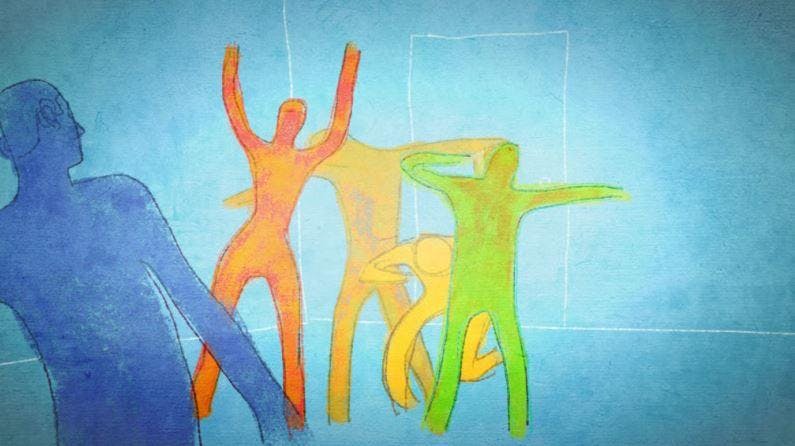 Sell tickets and manage registrations
Sell tickets and manage registrations
 View my tickets and registrations
View my tickets and registrations
 Sell more tickets through digital marketing
Sell more tickets through digital marketing
 Add an event calendar to your website
Add an event calendar to your website
 Find events by location and categories
Find events by location and categories
Introduction to Ethics and Multicultural Competence for Dance/Movement Therapists

Course Description
This course will introduce the concept of ethical practice for dance/movement therapists. Students will become familiar with the American Dance Therapy Code of Ethics as it relates to clinical practice. Students will examine cultural group identities and multicultural competence models, and will understand the relationship of ethical practice to cultural identity and issues.
This course is a required training module of
Lecturer

Format
Online webinar with interactive lectures, movement experientials, and Q&A. The course will consist of four sessions (Nov 7, Nov 28, Nov 19, 2018 and Jan 17, 2019) of 2 hours each, taught live and recorded with English and Chinese subtitles. Each of the first three sessions will include exploration of material through movement experientials, as well as discussion of specific case material. Please come prepared with case material, and questions regarding ethical practice as it relates to case material.
Course Goals
- To learn and understand the concept of ethical practice of dance/movement therapy.
- To examine the impact of socio-cultural group identities, such as race, ethnicity, socio-economic status, gender identity, sexual orientation, migration status, religion and its implications to ethical practice.
- To become familiar with the ADTA Code of Ethics as it relates to clinical practice.
Objectives
- Demonstrate knowledge of Code of Ethics for a dance/movement therapist
- Clearly formulate ethical decisions in specific cases
- Critique aspects of ethical decisions in specific cases
- Demonstrate how cultural identity interacts with ethical perspectives
- Demonstrate respect for different ethical perspectives
Attendance
Students will be expected to attend all classes to earn 1 course credit hour. In the event of unavoidable lateness or absence (2 hours total for this course) students will be assigned additional reading and written assignments to compensate. Student will be required to discuss with two other students what was missed and write a summary about the material to be handed in with written assignments.
Participation
Students are required to participate actively in discussions and any experiential exercises in every class.
Readings
- ADTA Code of Ethics
- Chinese Psychological Society Code of Ethics for Counseling and Clinical Practice (for Chinese participants)
- Chang, M. (2009) – Cultural consciousness and the global context of dance/movement therapy in S. Chaiklin & H. Wengrower (Eds.), The art and science of dance/movement therapy: Life is dance.
- Hervey, L. (2007). Embodied ethical decision making. American Journal of Dance Therapy.
- Sue, D.W. & Sue, D., (6th edition) Chapter 5: Systemic Oppression: Turst, Mistrust, Credibility, and Worldviews. In Sue, D.W., & Sue, D. (2016). Counseling the culturally diverse: Theory and Practice. John Wiley & Sons: Hoboken, NJ.
Date and time
Nov 7, Nov 28, Nov 19, 2018 and Jan 17, 2019. 7am-9am New York Time, 1pm-3pm Amsterdam Time, 8pm-10pm Beijing Time.
Course plan
Session 1: Introduction
Joan Wittig, Nov 7, 2018
- Introduction to course, go over syllabus, expectations for participation.
- Why teach ethics? What is ethical practice? Why teach multicultural perspectives? What is multicultural perspective?
- Define terms: ethics, values, morals; cultural competence, race, ethnicity, culture, etc
- ADTA Code of Ethics section 1.0 Integrity within the Therapy Relationship:
- Fundamental Respect for the Client
- Informed Consent
- Confidentiality and Privacy
- Professional Role Boundaries
- Use of Touch
- Assessment
- Duty to Protect Client
- Financial Arrangements and Business Practices
- Documentation and Record Keeping
- Termination, Referral and Continuity of Care
Session 2: Immersion
Joan Wittig, Nov 28, 2018
- Discussion of embodied ethical approach – ladder of inference, awareness of thinking process and making it visible to others.
- ADTA Code of Ethics section 1.0 Integrity within the Therapy Relationship continued:
- Education and Training
- Supervision and Consultation
- Self-Care
- Section 2.0 Competence to Practice
- Section 4.0 Professional Representation and Announcement of Services
- Section 8.0 Ethical Decision Making and Adherence to Professional Standards and Laws
Session 3. Ethics and Multicultural Competence in Practice
Joan Wittig, Dec 19, 2018
- ADTA Code of Ethics section 2.3 Multicultural Competence
- Section 6.0 Advocacy and Promotion of Social Justice
- Understanding Cultural Identity
Session 4. International Ethical Issues
International Panel Discussion, Jan 17, 2019 (TBC)
Discussion of ethical issues around the world: how do cultural concerns impact implementation of ethical practice? How does relevant ethical practice vary around the world?
Panelists : Joan Wittig (US), Amanda Yang (Taiwan), Dr. Hilda Wengrower (Israel), Dimitrios Zachos (Greece), Dr. Tony Zhou (China)


Other highlighted events from Inspirees Institute
Webinar series:
Webinar series:
Registeration to this ethics course gives you free access to Laban 17: Laban and Peace Mediation, and also gives you 10% discount for the above two webinar series (all-in-one package).